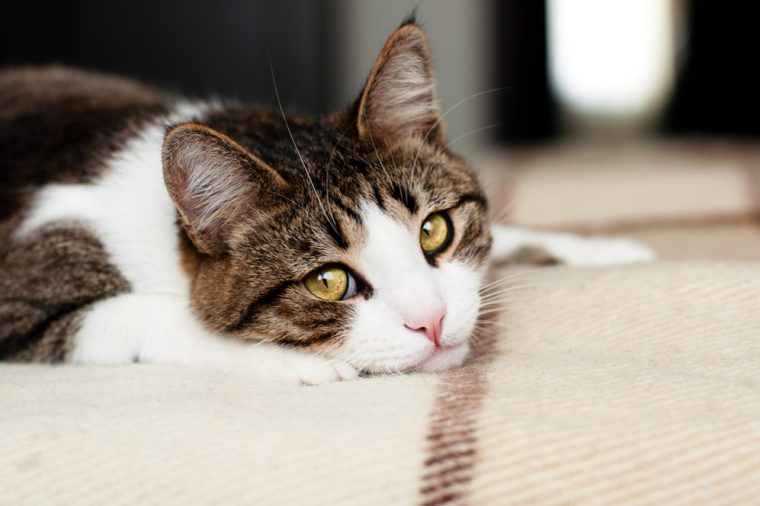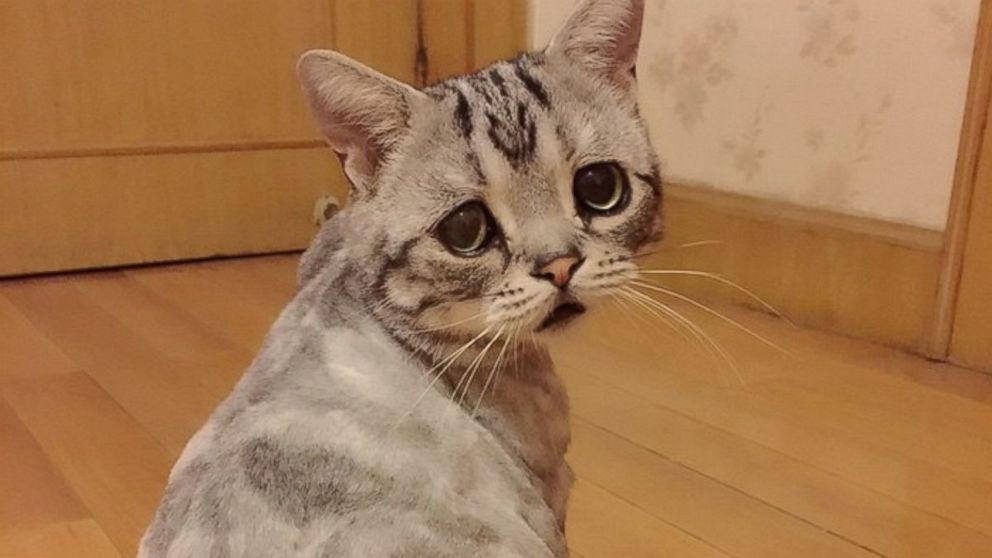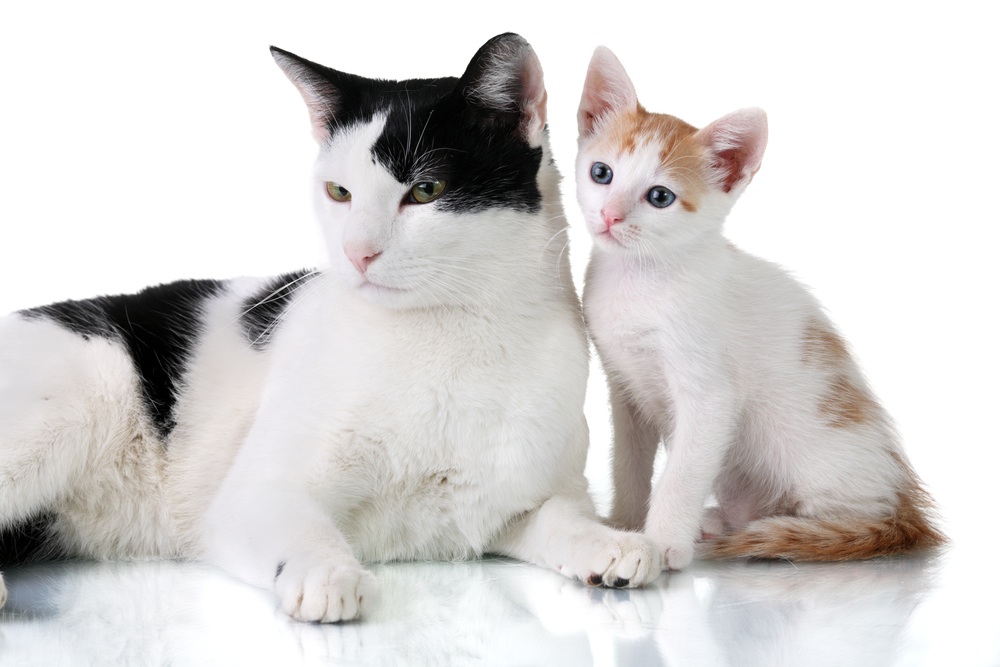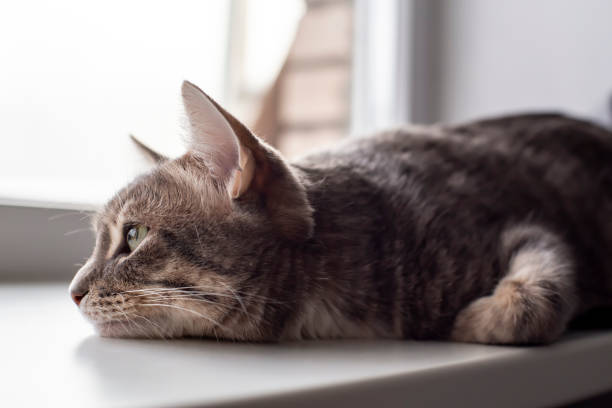You have been with your cat for years now. She’s a perfect companion with plenty of cuddles, love, and attention.
You look forward to spending time with her enjoying her soft body against your body and having her follow you around the house.
However, since you are at work for the better part of the day, you have realized that your kitty could do well with a friend of her kind. So, you have brought home a brand-new kitten.
What you expected would be the celebration of the century has turned out to be the worst nightmare.
Your once sweet and friendly cat doesn’t seem to like the new guest the least bit.
All of a sudden, she’s aggressive, anti-social, and anxious. She cannot be bothered to make friends with the kitten.
Her plate of food is barely touched. She hides from everyone these days.
What is happening? We investigate…
Does Cat Depression Exist?

Although humans cannot really tell what’s going on in cats’ brains, these little creatures can send signals of depression.
For the most part, cats get depressed when there’s a change in their environment.
Sometimes this can be something as little as moving the litter box a few inches from its original place.
They can also become sad and anxious when you outfit them with a new collar.
A new kitten changes the environment of the older cat in more ways than one.
As a cat owner, you probably know that cats are very territorial. The arrival of the kitten will certainly trigger the territorial stress switch in your older cat. Almost always, this means war.
Often, the young kitty is willing to make friends with the older cat. He will try to jump on the older cat, rub his tiny body against hers, and initiate play.
In return, the resident cat will growl at the kitten, ignore her, retreat to secluded places, and just show that she wants nothing to do with the kitten.
Some of the common signs of cat depression after a new kitten include vocal cues (less meowing, low-pitched and mournful yowls, and quietness), aggression, excessive sleep, hiding in strange places, changes in grooming, and decreased appetite.
What Causes Stress After A New Kitten?

What exactly makes the older cat stressed when a new kitten comes home?
1. Fear Of Sharing Attention
Cats are lone rangers. Even in the wild, they prefer to hunt and eat their food alone. In the domestic setting, this attribute still stands.
While they are okay having a number of humans and even other pets around, having another cat can spell trouble for her.
To her, the new baby will demand attention from her owners. All her life, she’s known that all the attention goes to her.
Now she has to watch you pet another kitten, cuddle with him, and spend time with him.
While she may get used to that later on, she needs time to make the adjustments.
2. Too Much Energy
Like a toddler, a young cat has too much energy on him. He is always ready to play, jump up and down the sofa, chase squirrels, you name it. They don’t tire easily.
Older cats, on the other hand, are rather reserved, laid-back, and peaceful.
Well, to be honest, not all of them have these qualities but a large majority of them do.
When you put both in the same place, the differences in energy expenditure can bring trouble.
Sometimes, the kitten will jump on the older cat when he’s sleeping in a bid to ask him to play. This will only annoy your cat and cause him to be reclusive and aggressive.
3. Change In The Environment
We’ve already covered this one already. Cats don’t appreciate a change in their environments at all.
How to Deal With It

It can be very frustrating to watch the war unfold between your beloved cats.
Luckily, there are a few things you can do to ease the tension and distress your older cat. Here are some of them.
A. Keep the Cats Separated
There are cat owners that believe that the best way to introduce two cats is to throw them in one room until they figure things out.
Granted, such an arrangement works for some but in most cases, it never ends well. The poor kitten is likely going to have her eyes gouged out.
To be safe, have both cats in totally separate rooms. You can have the older cat peep at the kitten from time to time to familiarize with him.
After a while, release the kitten to hang out with the older and establish whether there’s any connection. If not, keep them separate a little while longer.
B. Give Your Cat a Break From The Kitten
As mentioned earlier, one of the reasons your cat doesn’t like having a kitten is the excessive energy the youngster has. She just cannot keep up with it.
She will appreciate a chance to sleep without interruptions whenever she wants to.
When it’s time to lounge on the patio, she will do everything to enjoy some peace and quiet.
However, when there’s a very energetic feline running around the house wanting to make friends, getting her peace and quiet may seem like a dream.
To help her, give her a break from the kitten occasionally. Find a way to keep the kitten engaged and far away from the cat.
You’ll have to be creative here to keep both cats happy.
C. More Attention For The Cat
Your cat is already freaked out by the fact that your attention will be split between him and the kitten.
You need to assure her that your love and devotion for her haven’t changed because there’s a new kitten at home.
Keep petting her as you used to. Make time to play with her, cuddle, and bond.
If you can do that away from the kitten, that would be great. While you are at it, don’t forget to make time for your kitten as well.
Related Post: How to Cheer Up A Depressed Cat (10 Subtle Strategies)
D. Stick To The Same Old Routine
Depression in cats can be substantially reduced by maintaining a solid routine day in day out.
Try as much as possible to leave things as they were before the arrival of the kitten.
This includes meal times, grooming routines, playtimes, placement of the litter box, diet, vet visits, you name it.
Final Thoughts
Cat depression after a new kitten is a very real and frustrating occurrence.
It is heartbreaking when all you want is to have both your babies hit it off from the start.
Fortunately, you can intervene and make things a little less stressful for your cat.
Try the tips here and relieve your older cat from depression as you keep the kitten safe.
Related Posts:
How Much Hissing is Normal when Introducing Cats
When Should You Leave a New Cat Alone with Resident Cat?
Do Kittens Miss their Siblings?

Hi! I am Eleanor Price. I started this website after my cat, Louie, almost died from a case of botulism (a type of food poisoning often caused by bacteria that grow on food items). Turned out that my cat’s diet was the problem. I have made it my duty to provide the best information and recommendations about everything cat lovers need to know about their felines’ health and wellbeing. My goal is to find the most informative content on anything feline-related and share it with fellow hardworking kitty lovers.

